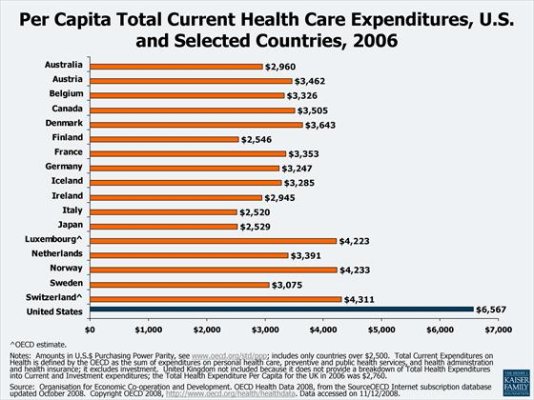But what if the government had, cough.."a public option"? That way they won't be forcing citizens in private commerce.
I don't think a "public option" would face any significant constitutional hurdle of the type this law faces. Depending on how things are structured, there might be some problems with implementation (e.g. in some foreign plans, the intrusiveness of the government medical system into people's lives goes well beyond what Americans have been comfortable with. But, we're gradually becoming desensitized to this, so maybe it won't be a problem. Once we strap on the government diaper and suckle from the government bottle, I think we understand that Uncle Sam will need to peek in our nappies occasionally to assure himself that all is well. )
Regarding the taxation level needed to support it: As far as I can tell, according to the present "sense of the public" there seems to be no inherent constitutional limit to how much the government is allowed to seize from one citizen to give to another. There is a practical limit, however. Unfortunately, there's no elegant feedback mechanism that keeps that "taking" in check, things just decay when people can't keep the product of their labor.
From an abstract "which is a bigger affront to freedom" POV, we should realize that taking our private property is very much like taking a part of our lives from us. We traded our time to get that property, it is time we can't get back, and when the property (earnings, savings, etc) is taken it's like losing a portion of our life. So, I'm not as concerned with the government directing me to buy a product from a private company as I am with minimizing the amount of this "taking", and also having some control over it (how much, what for, who gets my money, etc). If the government directs me to buy insurance from a private company (on the exchanges), at least I have the choice of who gets the money and maybe how much I spend. If history is a guide, and if the field is level, this privately-provided service may cost less, overall, and be of higher quality than the same service run by the government. On the other hand, with single payer, I'll be taxed without any say in how much is taken, and I'll live with whatever Uncle Sam chooses to provide. Neither is what the framers of the Constitution would have envisioned, but I know which I'll pick if given the choice.

